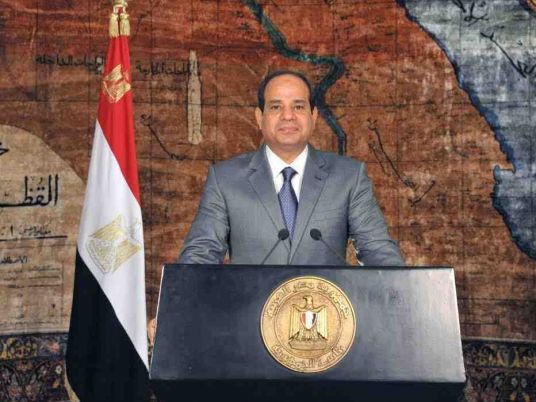
The government and business organizations continue extensive reforms in economy-related laws in line with Egypt's plans to increase investments and achieve targeted growth rates.
Many government officials and businessmen emphasized the government's interest in amending laws regulating the economic activity in Egypt.
The Erada initiative has spotted 30 laws being modified in order to improve the ranking of Egypt in the Doing Business annual report and improve the environment investment, said Hisham Ragab, deputy head of the committee for legislative reforms, a subcommittee of the Supreme Committee for Legislative Reform (SCLR) formed in August 2014 to review conflicting laws, and general coordinator of Erada (Will) initiative launched by the Industry and Trade Ministry to encourage investment in Egypt.
A set of important laws have been concluded over the past two years led by the law related to regulating appeals against contracts signed with the state. The law would prevent the influence of political changes on contracts, giving stability to investments in Egypt, Ragab said.
The Competition Act to prevent monopolistic practices has been also amended, as well as a new law that gives priority to local products in government tenders, according to Ragab.
Among the laws passed too was the law on funding microfinance projects which provided sources of funding other than banks to youth, reflecting the state's interest in youth and in curtailing the growing unemployment rates, Ragab mentioned.
The investment and tax incentives law has been also recently modified applying the single window system, a few days ahead of the economic conference of Sharm El-Sheikh,
A variety of methods have been developed for the allocation of lands dedicated to investment. Beside the rights of ownership and exploitation, the amendment granted the state the right to provide free lands to investors in some areas aimed at achieving growth, such as Upper Egypt and remote border areas, Ragab added.
For the first time, law in Egypt determines the scope of criminal liability for members of the boards of directors of companies and executive managers who would be responsible in accordance with new amendments for their personal deeds only. This amendment was one of the basic demands of the business community in Egypt, according to Ragab.
Another law on liquidation proceedings or the Bankruptcy Act will be concluded this year, Ragab said.
Among the forthcoming important amended laws is the Special Economic Zones Act, which will regulate investment in the Suez Canal zone. The articles objected by investors in the draft law have been modified and submitted to the State Council for review, Ragab added.
The banks law will be amended so as to encourage financial institutions to fund stalled projects, according to Ragab.
The Egyptian Financial Supervisory Authority seeks to issue a law that provides a simplified way of mortgage and achieves a degree of safety for funding institutions and clients, according to a statement by authority head Sherif Samy.
According to a statement by Hany Dewedar, economics professor at the University of Alexandria, the Industry Ministry submitted a draft law to regulate the activity of family businesses, which is still regulated by a royal decree issued in 1883. The law handles rules of registering family companies and develops a mechanism to protect the company from illegal competition by directors or partners.
The Companies Law No. 159 of 1981 will be amended so as to state that sole proprietor companies are the ideal type of companies for small and medium enterprises. Amendments to the same law will facilitate liquidation in cases of bankruptcy, facilitate the convening procedures of companies' general assemblies as well as measures to increase the company's capital. The draft law also put a clause to protect the rights of small shareholders and allowed their representation in the companies' boards through cumulative voting.
The final draft law is concerned with electricity. The draft law liberalized the electricity generation sector by allowing broader private sector partnership with the government. This law is expected to achieve a boom in energy investments.




